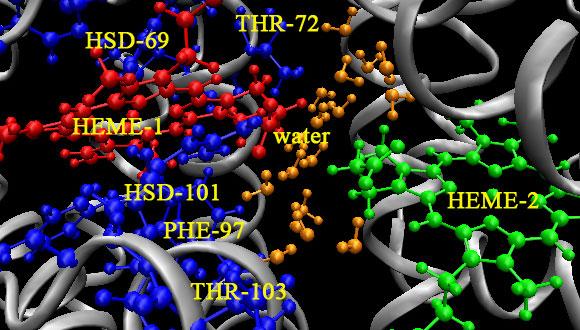Chemical Physics Seminar: Excited state phenomena and structural properties of low dimensional materials and solids
Tamar Hana Goldzak Mizrachi, Columbia University
Zoom: https://us02web.zoom.us/j/87075995730?pwd=RWNJSDMvN3RJaEpPeXRoZkFnZzExQT09
Abstract:
Excited states in molecules and materials are key for understanding their optoelectronic properties, such as quantum yield, absorption and emission spectra and more. These properties are important for the performance of optoelectronic devices such as solar cells, quantum detectors and more. They also play a key role in designing quantum information technologies, such as designing novel qubits. An accurate quantum mechanical description of excited state properties has been a long-time challenge, especially for complex molecular systems, such as colloidal nanocrystals (NC), which are composed of hundreds to thousands of atoms. Using ab initio electronic structure methods is desired for a microscopic quantum mechanical chemical understanding of excited state phenomena and structural properties. These calculations incorporate many body correlations effects from first principle, and help in understanding energy and charge transfer mechanisms on the atomic level, and serve as a guide for exploring novel materials and new synthesis pathways.
I am going to present recent research works within the scope of applying and developing electronic structure methods for complex molecular systems that are untreatable with conventional approaches. The main focus of the talk will be on applying Density Functional Theory (DFT) based methods to calculate excited states and absorption spectra in colloidal NC, and explore the role of NC’s surface structure on the excited state manifold and the spectroscopic properties. The second focus will be on developing wave function based, systematically improvable electronic structure methods for extended periodic systems, in particular modified second Møller–Plesset Perturbation Theory (MP2) for solids.


